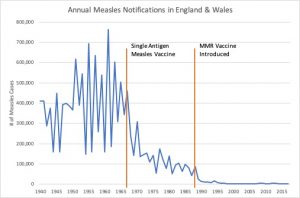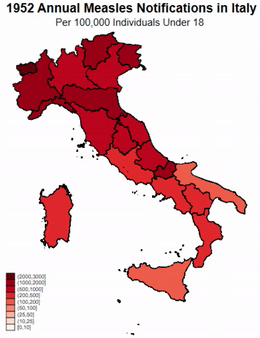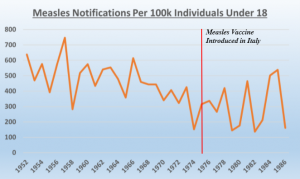This summer I worked with Professor Atwood and Ethan Ross to study the labor and productivity outcomes associated with receiving the measles vaccine during childhood. Our project was a continuation of Professor Atwood’s previous research, which focused on the United States. Her results showed increased earnings and employment associated with the measles vaccination, and this summer our goal was to replicate this research in other countries to see if the results are similar. Measles is a universal disease, meaning that geography doesn’t have an impact on how common it is, so our research could be done in any part of the world. My focus was on England & Wales, while Ethan looked at Italy.
Our time was divided between tracking down data and researching. The goal for data collection was to find data on measles incidence rates and population for a time period surrounding the rollout of the vaccine. For England & Wales, this time frame was 1950-1980. We were able to access digitized versions of this data for the 1950s and are currently in the process of obtaining physical copies from Cornell University for the remaining years. Additionally, we wanted long-run data, including employment status and region of residency. In terms of research, Ethan and I looked at measles, its history, and the vaccine. For England & Wales, I researched the vaccine rollout, labor force participation (i.e. do we see differences between men and women), and internal migration.
While we were unable to get complete results in this short time frame, we were able to make substantial progress tracking down hard-to-find data and conducting research important to providing context to this project.



